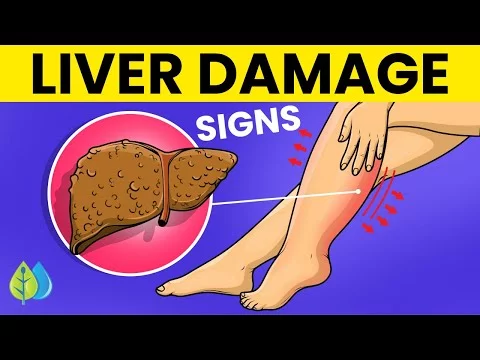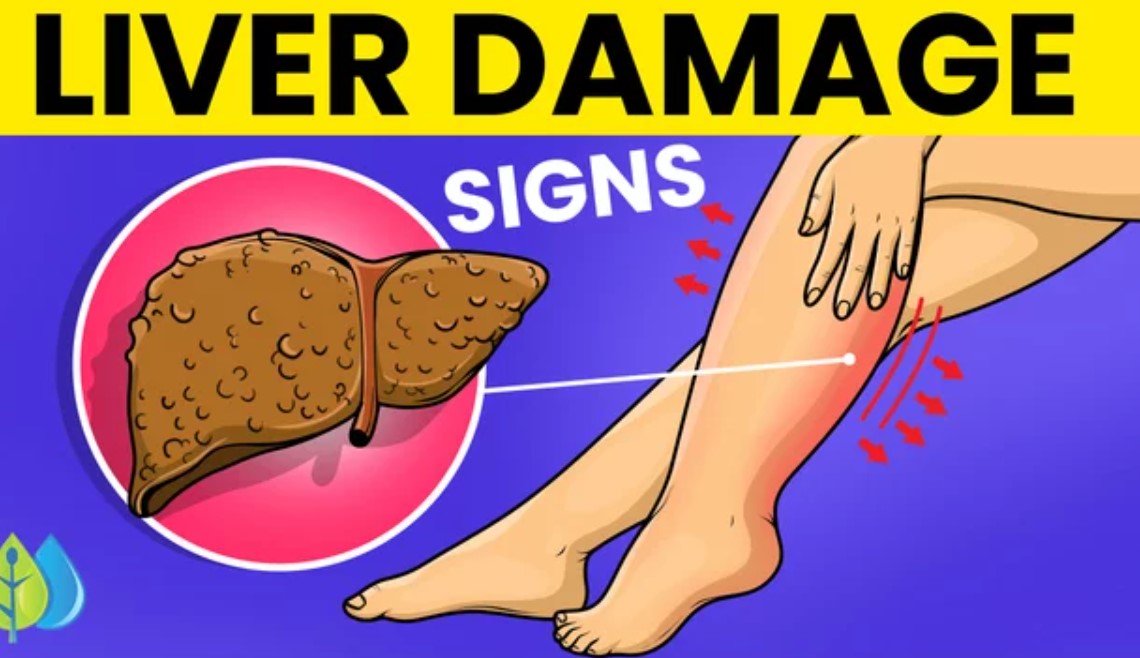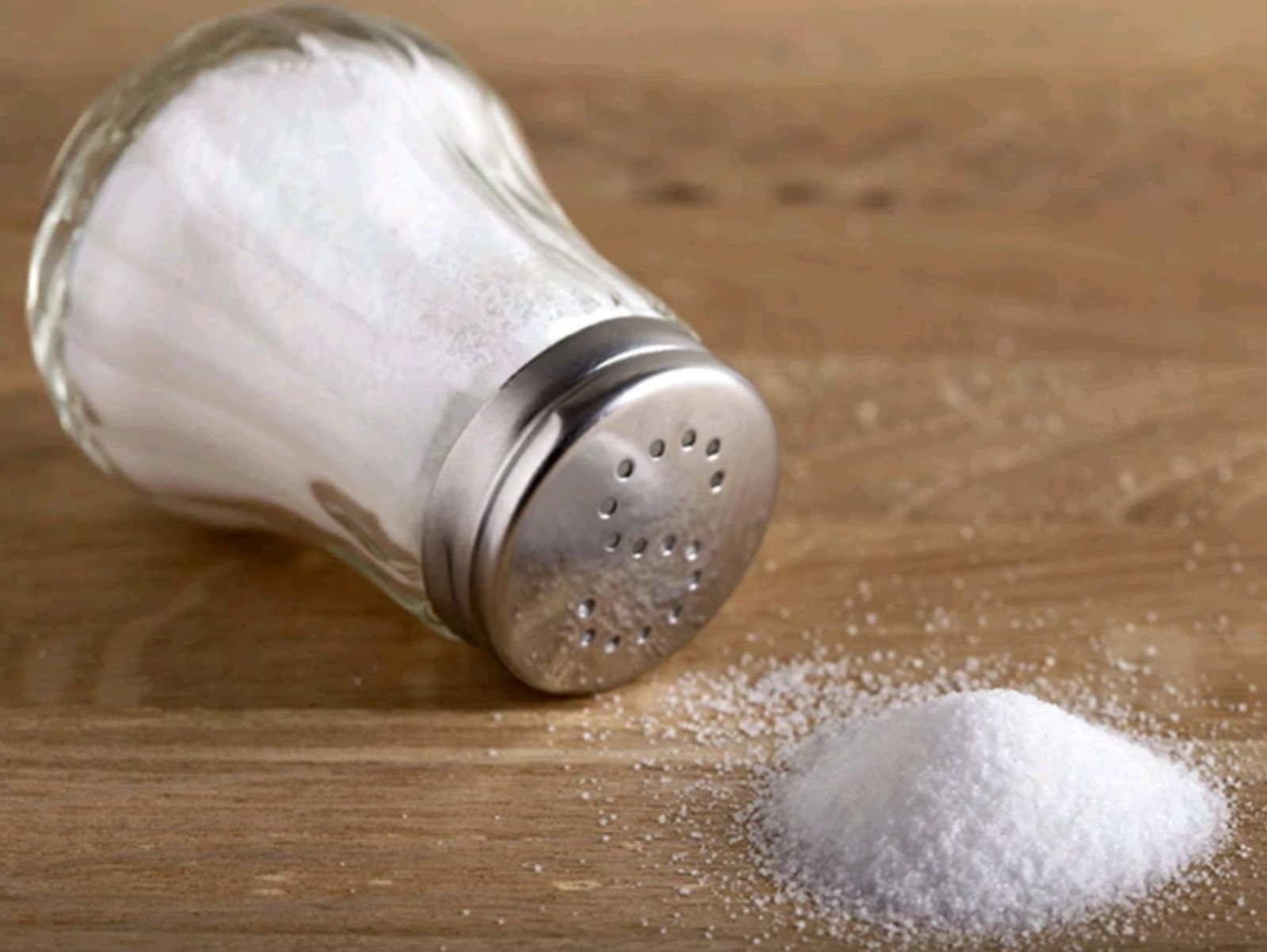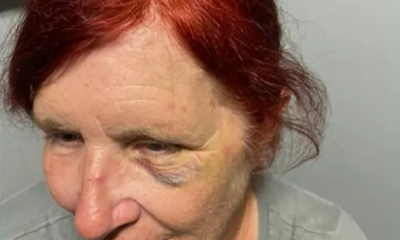
Watch this video on YouTube
When your liver is injured to the point where it can’t function effectively, it leads to
liver damage
. This can ultimately progress to liver failure, which requires prompt medical attention.
The most common causes of liver damage include overconsumption of ultra-processed foods, alcohol abuse, certain medications, viral infections, obesity and autoimmune conditions.
Severe liver damage often develops over many years, progressing from inflammation to scarring, known as fibrosis, and then to cirrhosis, when the liver hardens with scars and nodules, and finally to liver failure.
Common diseases of the liver include
nonalcoholic fatty liver disease (NAFLD)
, cirrhosis, drug-induced liver disease, alcohol-related liver disease, hepatitis and liver cancer.
Today, we look at 14 signs of liver damage if you develop cirrhosis, going from early to advanced symptoms.
When your liver is damaged, it struggles to metabolize fats and proteins from your food, leading to difficulties in bile production and the processing of fatty meals. If you have chronic liver damage, you may experience symptoms such as nausea, vomiting, and a distaste for meals high in fat and protein.
When your liver is damaged, you may experience visible signs on your skin. Hormonal changes can cause small blood vessels to dilate, leading to the appearance of spider veins, especially on your face and torso. You may also notice a blotchy redness on your face, palms, and feet, which can be due to hormonal changes, vitamin deficiencies, or increased pressure in your vascular system.
In more advanced liver damage, jaundice can cause your skin to turn yellow. Jaundice occurs when a waste product called bilirubin builds up in the body, due to the liver’s inability to metabolize it.
When your liver is damaged, it needs to work harder to carry out its essential functions. This results in you feeling tired all the time and having difficulty concentrating, as your liver filters out toxins at a slower pace than usual.
The liver is also less efficient in breaking down food and absorbing the nutrients needed to maintain mental clarity and overall well-being. In more advanced cases of liver disease, this can lead to hepatic encephalopathy, which is brain damage caused by high levels of toxins in the body. The symptoms of hepatic encephalopathy include forgetfulness, memory loss and confusion.
Sleep disturbances often trouble those with liver damage. These disruptions worsen as liver disease progresses, leading to a cycle of poor sleep and declining health. You may find yourself unable to sleep due to the discomfort caused by symptoms such as swelling in the abdomen or mental changes associated with hepatic encephalopathy.
When your liver isn’t working properly, it can cause malnutrition. This usually begins with a decreased appetite or frequent nausea, leading to weight loss. For people with cirrhosis, a poor appetite and diet can greatly contribute to
muscle wasting (sarcopenia) READ FULL STORY HERE>>>CLICK HERE TO CONTINUE READING>>>
, a decline in muscle mass and strength. They may experience accelerated starvation, where 10 hours of fasting affects them as much as three days of starvation would affect a healthy person.
Abdominal swelling is a telltale sign of cirrhosis. This condition, known as ascites, arises when the loss of proteins in the blood, cause fluid to leave the vessels and accumulate in the space between the tissues which line the abdomen and abdominal organs. This fluid buildup exerts pressure in the abdomen, leading to discomfort and pain.
Portal hypertension, which is high blood pressure in the portal vein that delivers blood from the digestive organs to the liver, can also lead to the development of ascites. The increased pressure and blood pooling can also cause the spleen to enlarge, causing upper left-side abdominal pain that radiates to the back.
If you’re experiencing pruritus, or itchy skin, it could be a sign of a liver disease. This itching could be caused by the restriction or stoppage of bile flow from the liver. This type of itching can be so intense that it disrupts your sleep and daily activities. It does not generally involve rash or skin lesions, and is not relieved by scratching. The itching can develop in one area or all over your body, but it’s most commonly felt on the palms of your hands and the soles of your feet.
When your liver is not functioning well, it can slow down digestion, leading the body to increasingly excrete toxins in the bowels. This results in constipation or diarrhea. In later stages of liver damage, the liver may struggle to produce and process bile and bilirubin, which give stool its brown color, causing the stool to become pale-colored.
Dark urine is often one of the first signs that bilirubin levels are elevated. This happens because the damaged liver cannot break down this yellowish pigment and remove it properly. Without effective elimination through stool, excess bilirubin circulates back into your bloodstream and then gets filtered out by your kidneys, darkening the urine.
Your liver plays a key role in making proteins that help your blood to clot. When your liver is damaged, it struggles to help
blood clot
properly after an injury, thus causing more bruising or bleeding. Frequent nosebleeds and bleeding gums, or prolonged bleeding from simple cuts, are indications of potential liver issues.
Another problem can arise when new blood vessels are formed to bypass the damaged liver, due to portal hypertension. These vessels, often created in the esophagus and stomach, can swell and cause severe bleeding, especially if blood clotting is not functioning well. If you experience symptoms such as vomiting blood or black stool, it could be a sign of gastrointestinal bleeding, and you should seek immediate medical attention.
Liver damage can lead to fluid buildup in your ankles and legs. This happens because the loss of blood protein allows fluid to leak into the tissues. Due to gravity, the legs and ankles are often affected as fluid is pulled down towards the feet. In the late stages of liver damage, noticeable puffiness is commonly seen around the lower limbs.
Various types of liver disease can have noticeable effects on the nails. For instance, Terry’s nails, which are mostly white with a thin, reddish-brown strip near the tip, are often linked to liver failure or cirrhosis.
In a study, 68 percent of liver disease patients (with cirrhosis, hepatitis C, and hepatitis B) had nail changes, while only 35 percent of the control group did. The most frequent change was a fungal nail infection called onychomycosis.
You may also notice other changes like ridges running lengthwise on the nails, nails that are prone to breaking, fingertips becoming rounded and enlarged, and nails that are thick, misshapen, or have unusual color.
The prevalence of erectile dysfunction is high in men with nonalcoholic fatty liver disease (NAFLD). Liver damage can also lead to a decrease in sexual desire. Although the exact reasons for these symptoms require more research, many experts think they result from imbalances in sex hormones commonly seen in liver conditions. Also, alcohol seems to contribute to the loss of sexual function, particularly in men.
is a chronic odor in your breath, different from normal bad breath, and is a distinctive symptom of liver disease. It is not related to dental hygiene, and cannot be solved by brushing your teeth more often or using special mouthwash. The scent is described as a mixture of rotten eggs and garlic. This symptom does not appear until there is already significant liver damage, and can only be solved by curing liver disease.
So, there you have it! Some of the most important symptoms of liver damage. If you have more than one of these symptoms, and they don’t go away, consult a healthcare professional who can evaluate your liver function.




















